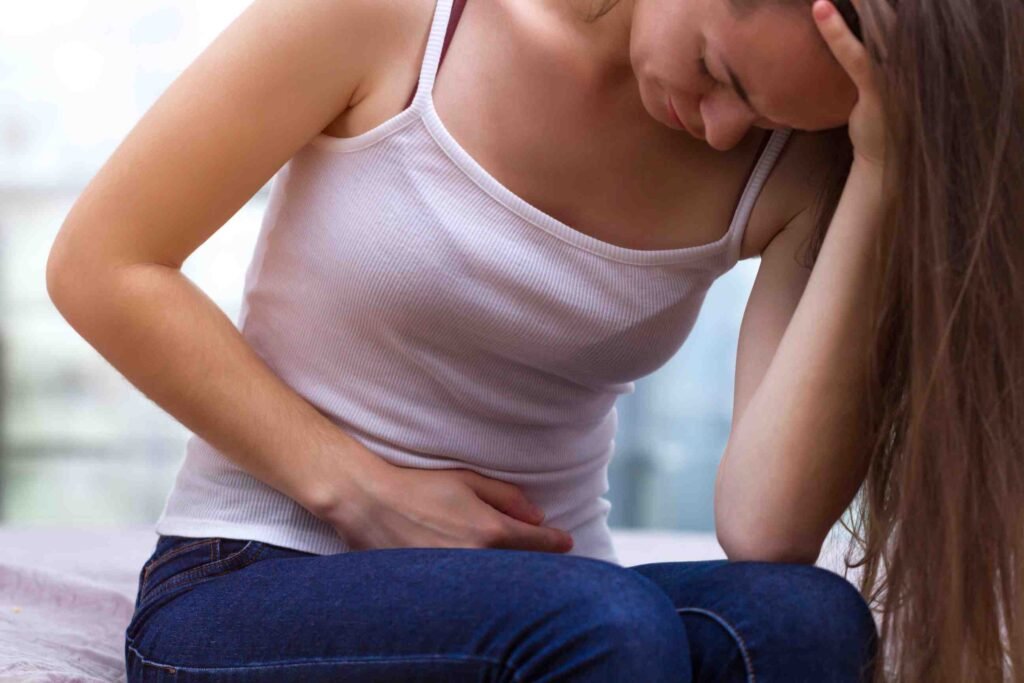Understanding the Reasons Behind Painful Periods
Periods are a natural part of life for most women, but for many, they bring along more than just the inconvenience of dealing with monthly bleeding. Painful periods, medically known as dysmenorrhea, can be a significant burden, affecting daily life and overall well-being. In this blog, we will dive deep into understanding why periods can be so painful and what can be done to alleviate the discomfort.
What is Dysmenorrhea?
- Dysmenorrhea is the term used to describe painful menstrual cramps that occur before or during a woman’s period. It is classified into two types: primary and secondary.
- Primary Dysmenorrhea: This is the most common type, starting usually in adolescence and not associated with any other medical condition. The pain is typically caused by uterine contractions triggered by prostaglandins, hormone-like substances involved in pain and inflammation.
- Secondary Dysmenorrhea: This type tends to start later in life and is linked to underlying reproductive health issues such as endometriosis, fibroids, or pelvic inflammatory disease (PID).

Common Causes of Painful Periods
1. Prostaglandins
Prostaglandins are chemicals produced by the lining of the uterus that help it contract and shed its lining. High levels of prostaglandins can cause intense uterine contractions, leading to pain. This is the primary cause of pain in primary dysmenorrhea.
2. Endometriosis
Endometriosis occurs when the tissue that normally lines the inside of the uterus grows outside of it, often on the ovaries, fallopian tubes, or pelvic lining. This tissue thickens and bleeds with each menstrual cycle, causing severe pain and inflammation.
3. Uterine Fibroids
Fibroids are noncancerous growths in the uterus that can cause heavy bleeding and significant pain during periods. They can vary in size and number, contributing to varying levels of discomfort.
4. Adenomyosis
Adenomyosis happens when the inner lining of the uterus breaks through the muscle wall of the uterus. This condition can cause painful, heavy periods and the uterus may become enlarged.
5. Pelvic Inflammatory Disease (PID)
PID is an infection of the female reproductive organs often caused by sexually transmitted bacteria. This infection can lead to scarring and chronic pain, especially during menstruation.
6. Cervical Stenosis
In some women, the opening of the cervix is small and obstructs menstrual flow, causing a painful increase in pressure within the uterus.
7. Intrauterine Device (IUD)
An IUD is a form of birth control inserted into the uterus. While effective, it can sometimes cause increased menstrual pain, especially during the first few months after insertion.

Symptoms Associated with Painful Periods
The severity of menstrual pain can vary, but common symptoms include:
- Throbbing or cramping pain in the lower abdomen
- Pain that radiates to the lower back and thighs
- Nausea and vomiting
- Diarrhea or loose stools
- Headaches and dizziness
- Fatigue
For those dealing with severe pain, it’s crucial to consult a healthcare provider. The best gynecologist in Bangalore can help diagnose and manage these symptoms effectively.
Managing and Alleviating Menstrual Pain
While painful periods can be challenging, there are several strategies and treatments available to help manage the discomfort.
1. Over-the-Counter Pain Relief
Nonsteroidal anti-inflammatory drugs (NSAIDs) like ibuprofen or naproxen can help reduce the production of prostaglandins and alleviate pain.
2. Hormonal Pills
Birth control pills, patches, or hormonal IUDs can help regulate or even eliminate periods, reducing the severity of cramps. These methods can also help manage conditions like endometriosis and fibroids.

3. Lifestyle Changes
- Exercise: Regular physical activity can help reduce the severity of menstrual cramps.
- Diet: A balanced diet rich in fruits, vegetables, whole grains, and lean proteins can promote overall health and potentially reduce menstrual pain.
- Hydration: Drinking plenty of water helps reduce bloating and cramps.
- Sleep: Ensure adequate sleep to help your body manage pain and stress.
4. Heat Therapy
Applying heat to the lower abdomen can help relax the muscles and reduce cramping. A heating pad, hot water bottle, or warm bath can provide relief.
5. Alternative Therapies
Acupuncture: Some women find relief through acupuncture, which involves inserting thin needles into specific points on the body.
Yoga and Stretching: Gentle yoga poses and stretching can help alleviate pelvic pain.
6. Medical Treatments
For severe or persistent pain, medical treatments may be necessary. These can include:
- Prescription Medications: Stronger pain relievers or hormonal treatments.
- Surgery: In cases of endometriosis or fibroids, surgical intervention may be required.
- Consulting with the best gynecologist in Bangalore can help determine the most appropriate treatment plan based on individual needs and medical history.

When to Seek Medical Help
While occasional menstrual pain is normal, certain symptoms warrant a visit to a healthcare provider:
- Severe pain that interferes with daily activities
- Pain that worsens over time or begins later in life
- Heavy bleeding or passing large blood clots
- Symptoms of infection such as fever, chills, or unusual discharge
- It’s important not to ignore severe or persistent symptoms, as they could indicate underlying health issues that need to be addressed by a professional. The best gynecologist in Bangalore can provide a thorough evaluation and appropriate care.
Coping with the Emotional Impact of Painful Periods
Chronic pain can take a toll on mental and emotional well-being. Here are some tips to help cope:
- Support System: Surround yourself with understanding friends and family.
- Stress Management: Techniques such as meditation, deep breathing, and mindfulness can help manage stress.
- Counseling: Speaking with a therapist can provide emotional support and coping strategies.

Conclusion
Painful periods are a common issue for many women, but understanding the reasons behind the pain and exploring effective management strategies can make a significant difference. From lifestyle changes and over-the-counter remedies to medical treatments and support from the best gynecologist in Bangalore, there are many ways to find relief and improve quality of life.
If you or someone you know is struggling with painful periods, don’t hesitate to seek help. Addressing the issue early on can lead to better management and a more comfortable, healthy life. Remember, you don’t have to suffer in silence—support and solutions are available.


